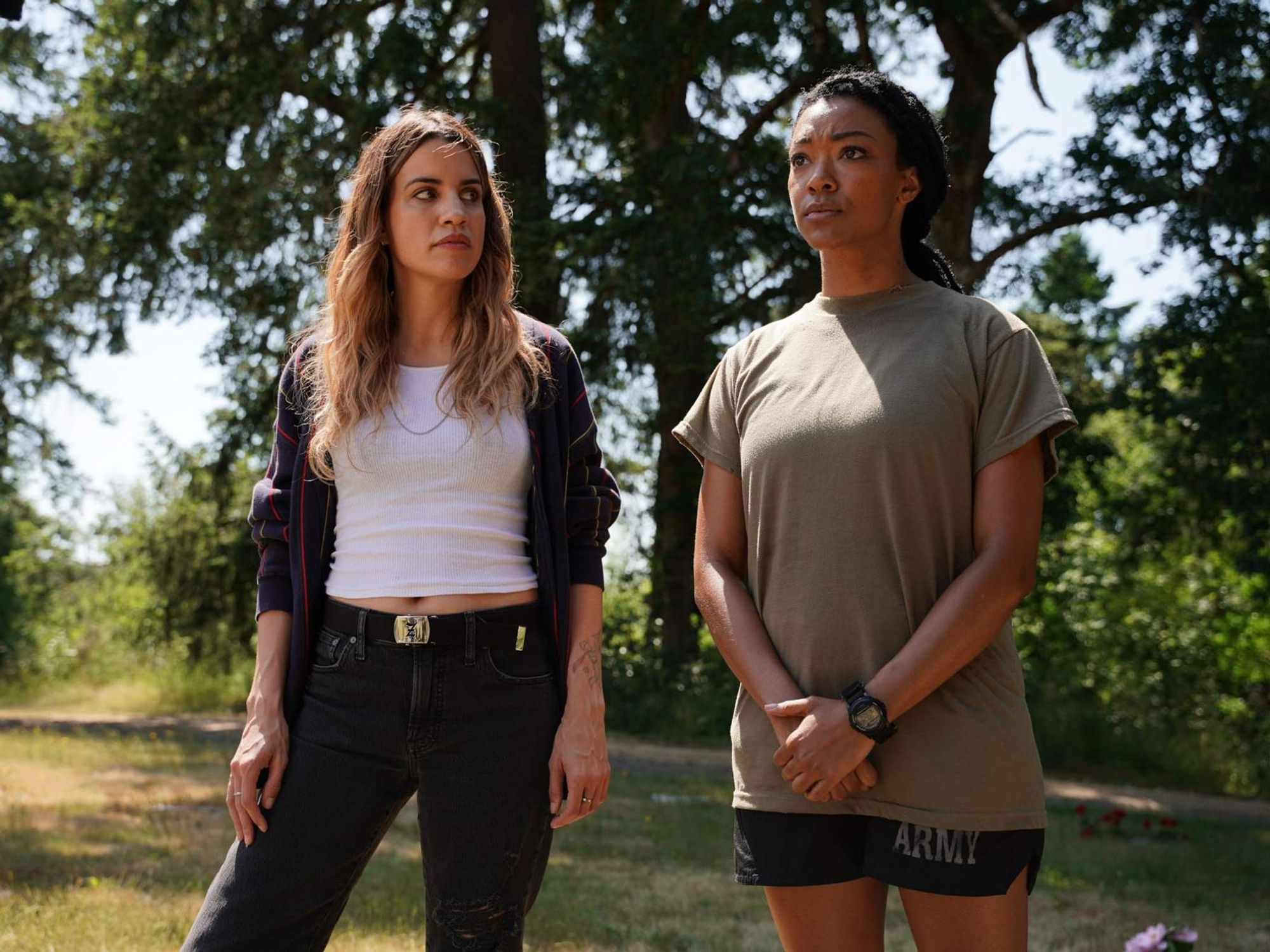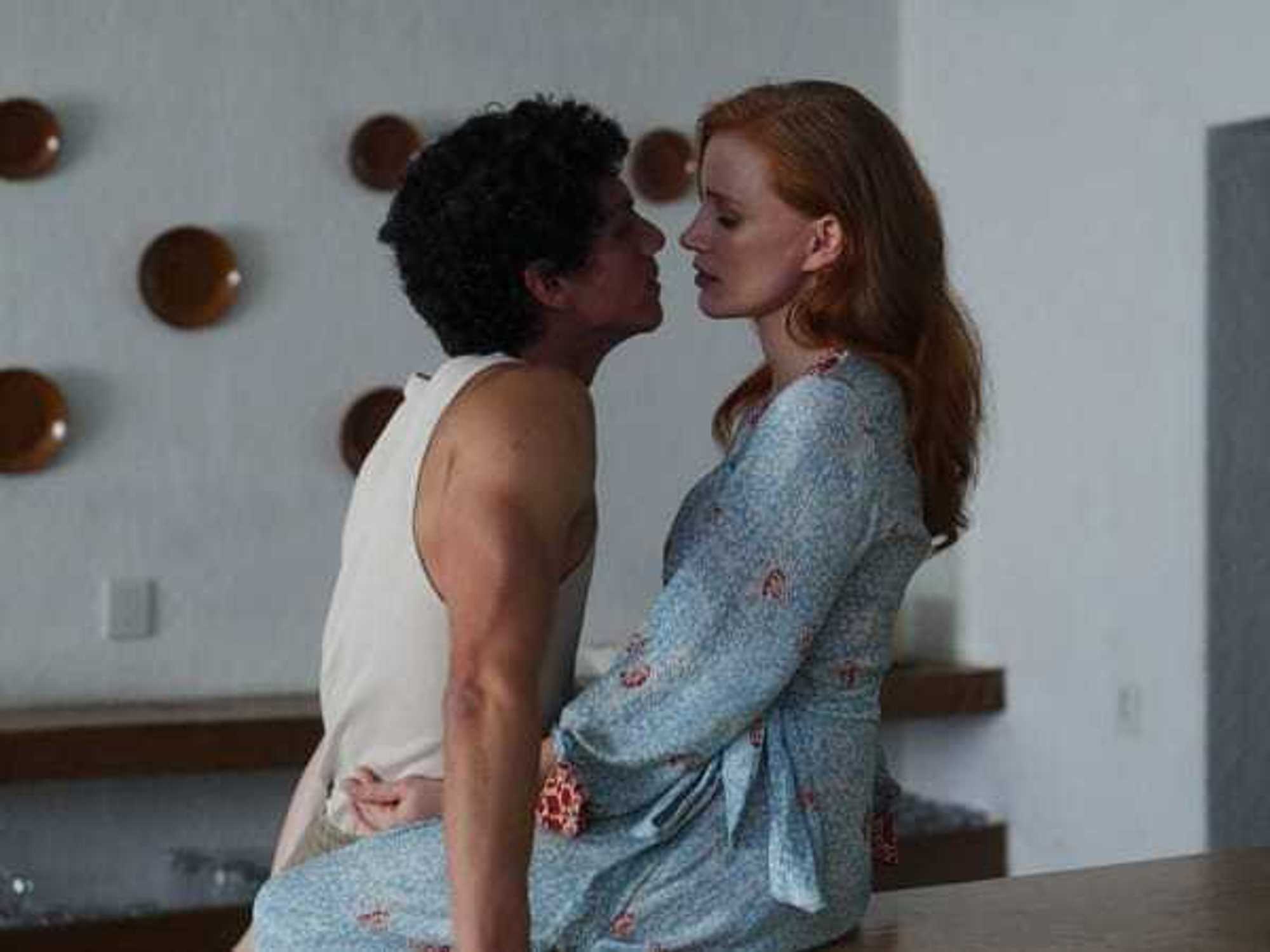Movie Review
Military vet gives war film My Dead Friend Zoe warmth and integrity

Natalie Morales and Sonequa Martin-Green in My Dead Friend Zoe.
When you think about the “war is hell” genre, it’s easy to picture movies that actually depict combat. There have been fewer movies made about what happens after someone returns from war, although they include films like 1947 Best Picture winner The Best Years of Our Lives, the Oscar-winning The Deer Hunter and Born on the Fourth of July, and more recent films like Thank You for Your Service.
My Dead Friend Zoe does double duty in its storytelling, taking on PTSD in the modern soldier and framing it through the eyes of women, who rarely get showcased in movies about the military. Merit (Sonequa Martin-Green) and Zoe (Natalie Morales) served together in the Army in Afghanistan in 2016, becoming fast friends not least because of the high male-to-female ratio there.
The bulk of the film takes place sometime after their stint together, with Merit in group therapy with fellow veterans under the guidance of Dr. Cole (Morgan Freeman). Zoe accompanies her everywhere she goes, but - as the title tells you - Zoe is dead, appearing as a hallucination for Merit and alternately helping and torturing her with comments about what Merit is doing with her life. To add even more stress onto Merit, she’s enlisted by her mother, Kris, (Gloria Reuben) to look after her grandfather, Dale (Ed Harris), who’s been diagnosed with Alzheimer’s disease.
Directed by Kyle Hausmann-Stokes (an Army veteran himself), and adapted by Hausmann-Stokes and A.J. Bermudez from Hausmann-Stokes’ short film, Merit x Zoe, the film is a strong combination of a story about friendship, family, and the difficulty of reintegrating into a “normal” life after being in a war. Merit’s ability to “see” Zoe is a double-edged sword, as it allows her some measure of happiness in her otherwise depressed state, but it also is indicative of a deep well of pain that she’s not ready to confront.
To underscore Merit’s mental state, Hausmann-Stokes goes back and forth between scenes depicting Merit and Zoe’s time serving together and the current day. The juxtaposition of the two time periods allows the audience to understand the two women’s friendship better, as well as why Merit continues to find it tough to adjust to life outside of the military. The bond between her and Dale, who also served in the Army, brings an added element of gravity to her story.
The only slight misstep Hausmann-Stokes makes is by introducing Alex (Utkarsh Ambudkar), a possible romantic interest for Merit. On their own, the scenes between the two of them are relatively charming and it’s easy to understand the temptation to add some levity to the heavy plot. But the subplot never brings anything of substance to the overall film, and it could have easily been excised without affecting the story as a whole.
Martin-Green is an industry veteran best known for starring in the TV shows The Walking Dead and Star Trek: Discovery. She ably holds her own as the star of the film, cycling through Merit’s highs and lows with ease. Morales is allowed to be more fast and loose with her performance, and she proves to be a great complement to Martin-Green. The steady hands of Freeman, Harris, and Reuben help to keep the story grounded and provide the familiarity that the two stars might not have for all moviegoers.
My Dead Friend Zoe is a message movie whose message changes as the film goes along. Made by a former member of the military in dedication to people with which he served, it’s an impressive debut feature film for Hausmann-Stokes that brings a desire to see more from him, as well as the two main actors.
---
My Dead Friend Zoe opens in theaters on February 28.
